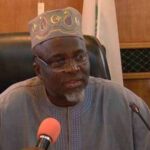By Hassan Zaggi
The Executive Director of National Primary Health Care Development Agency (NPHCDA), Dr. Shuaib Faisal, has assured donors and partners that Nigeria is determined to eradicate all variants of polio still in circulation.
It would be recalled that Nigeria was declared Wild Polio Virus (WPV) free six years ago. The last case of WPV was last seen in Nigeria in 2006,
Speaking at the 39th meeting of the Expert Review Committee (ERC) on polio and routine immuniisation in Nigeria, on Tuesday, Dr. Faisal noted that Nigeria was tired of being a country that is last in eradication polio viruses.
“I want to assure our partners that we are here for business that some of the results you see in the last few months are not accidental.
“We are tired of being a country that is last to eradicate polio viruses. We are tied of being a country that is synonymous with poor performance.
“That is why you are seeing exceedingly great performances in our campaigns in the last few months. That is why we will continue to do moving forward.”
The NPHCDA Executive Director, however noted that the first and most important way to eradicate polio is routine immunization.
While urging for more collaborative efforts between the federal government and donors/partners, Dr. Faisal said: “We cannot continue to work in silos. I hope that our partners will heed this call and also bring us together instead of pulling us apart.
“For those who said we cannot successfully integrate routine immunization with the polio campaign without negatively impacting the polio campaign, the result of last round is there for you.”
Dr. Faisal who insisted that some donors and partners do not support the government as they always claim to do, he called for harnonisation of all health related programmes and projects in the country so as to ensure judicious use of resources meant for the health sector.
According to him: “In the last couple of days, I discussed with one of our partners. Partners are supposed to support government. This is not always the case in Nigeria.
“In a lot of instances, we find out that partners have their own agenda, their plans and they are following it. But in every opportunity, they will say they are just there to support government, but from the way I see it, we know, and NPHCDA staffers know that it is not consistently true that our partners are supporting us in the way they work.
“I was discussing with one of our partners that we have gotten 500,000 dollars to support our work. So we decided that we are ready to use that resource in some states and the partner said that they have already earmarked that money given by a donor to Nigeria for other states and other things.
“ I said, what kind of collaboration is this? This is not collaboration. This is dictatorship. A real collaboration means that we should sit together and take decision based on the science.
“This is part of the problem that we have in this country. There is a lot of money that comes into Nigeria, domestic funding, partner and donor funding but the result don’t match the funding.
“Let us be honest with ourselves. It is not necessary getting more money for health. How much health are we getting for the money that we have.
“As we roll out the plans to ensure we eradicate Vaccine Derived Polio Virus type 2 (cVDPV2) in Nigeria, let us be mindful on how we ensure the deployment of our resources behind this national emergency plan that will be presented today.
“This is where government wants to go. If you are going to be working with government, follow this action plan. This is because this action plan was not developed by only government. It is developed in collaboration with our donors and partners.”
While describing the last round of polio immunization campaign as one of the best, Dr. Faisal said: “This was one of the rounds where we actually saw states showing interest and driving the programme.
“This was also a unique campaign because for the very first time in our history of polio eradication, we actually took great pains to incorporate routine immunization into our SIAs.
“For the first time, we made show we held the states accountable for the preparations toward integrating routine immuisation with this campaign. During the campaign, we also watched carefully and took data on how kids were being vaccinated in the fixed post.”
In his good will message, the Country Representative of World Health Organisation (WHO) in Nigeria, Dr. Walter Mulombo, applauded the federal government, the Global Polio Eradication Initiative (GPEI) partners and the NPHCDA for the significant improvement in the quality and impact of the circulating Vaccine Derived Polio Virus type 2 (cVDPV2) Outbreak Response in Nigeria.
He, however, warned that the global risk of WPV and cVDPV2 transmission remain high given the endemicity of WPV1 in Pakistan and Afghanistan, and the residual risks in Mozambique and Malawi.
Also, according to him, there are concerns of the recent increases in cVDPV2 cases in Democratic Republic of Congo.
Dr. Mulombo, therefore, noted that: “Given the impact of COVID-19 pandemic on the economy, the interruption the cVDPV2 outbreak demands renewed commitments and focus by all key players.
“Reaching and sustaining zero cases of cVDV2 in Nigeria in 2023 is achievable however would demand addressing the residual risk of re-upsurge of cVDPV2 in consequential geographies; bridging immunity to avert risk of wild polio virus (WPV) importation; implement innovations and enhanced strategies to reduce orphan virus detection and improving monitoring and accountability mechanisms during vaccination campaigns
Other considerations, according to him, include continuous prioritization of nOPV2 vaccine allocation for Nigeria to improve and speed and scope of vaccination response; and effectively impact of spread to the sub-regions and accelerating efforts to mitigate delays in release of sequencing results.


